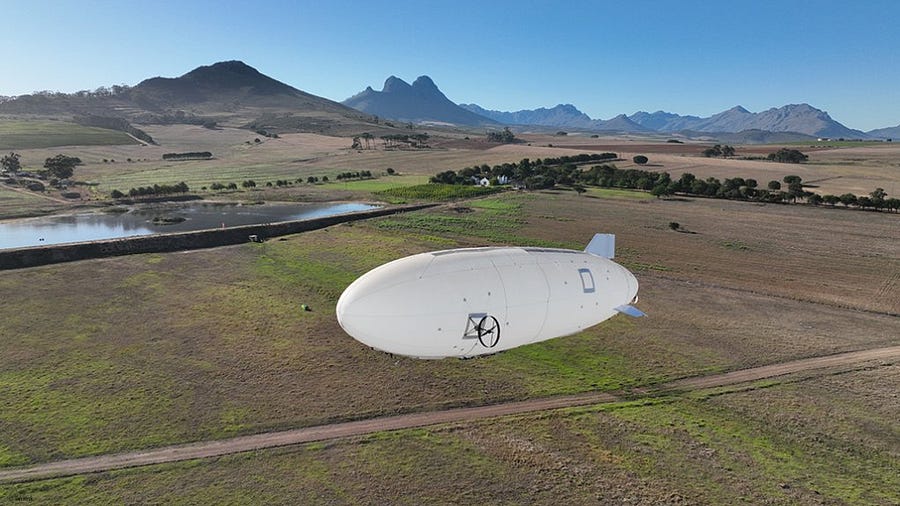South Africa’s Cloudline Secures $6M to Propel Emissions-Free Autonomous Flight Vision
South African aerospace startup Cloudline recently secured $6 million in funding through a seed round. The investment was led by Schmidt Futures, a philanthropic venture founded by ex-Google CEO Eric Schmidt and Wendy Schmidt. Other prominent investors in this round include pan-African funds like the Raba Partnership, Verod-Kepple Africa Ventures, 4Di, and various venture firms. Cloudline, founded by Spencer Horne six years ago, envisions leading the global frontier of carbon emissions-free autonomous flight.
Spencer Horne’s initial intent, dating back to the company’s inception, was to develop a transport system connecting isolated communities to the global supply chain. This was to be achieved through the use of lighter-than-air uncrewed aerial vehicles for delivering large payloads. The founder’s childhood fascination with trains and a passion for transportation technology, especially aviation, drove him to contribute to this field. The startup’s unique approach involves autonomous airships that offer a cost-efficient alternative to drones, helicopters, and satellites.
Why The Investors Invested
Investors committed to Cloudline’s vision for several compelling reasons. In the first place, Cloudline addresses a critical gap in the market by providing long-distance real-time data and extended flight times for large regions. The startup’s autonomous airships, powered by helium and solar energy, stand out for their range, endurance, and efficiency. This innovative solution allows for emissions-free, cost-effective flights, covering over 400 km with a 40 kg payload for 10 hours. Cloudline’s first-mover advantage in the relatively uncompetitive airship market positions it strongly.
Again, investors recognize the breakthrough potential of Cloudline’s platform in reaching remote or disaster-affected areas, enabling them to become accessible and affordable. The company’s focus on hardware, particularly integrating software for airship autonomy, establishes a robust intellectual property that proves challenging for potential competitors to replicate. The success of drone companies, according to Horne, hinges not just on functional drones but on delivering value through a viable business model.
A Look At Cloudline
Founded in 2016, Cloudline is the brainchild of Spencer Horne, a Harvard alum with a background in mechanical engineering. The startup, headquartered in Cape Town, South Africa, operates in a relatively uncompetitive market due to its emphasis on hardware, specifically autonomous airships. Cloudline’s technology allows for comprehensive data capture through various sensors, including visual, infrared, and lidar, in a single flight.
The company’s primary markets include governmental institutions seeking multi-sensor payloads for aerial monitoring, as well as organizations involved in nature conservation, coastal monitoring, and reforestation. Cloudline’s success lies in its beachhead strategy, developing solutions in Africa for the continent as its initial customer base before expanding globally. The startup’s commitment to emissions-free technology, combined with its unique value proposition, has quickly gained traction among customers and investors alike.




